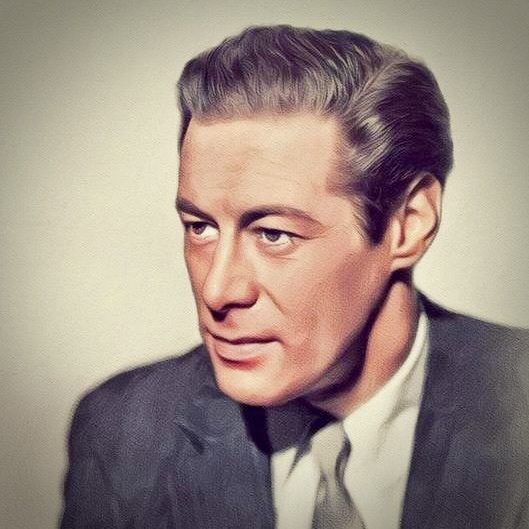On the Food network they boil potatoes, but they poach carrots. They poach turkey, but they boil eggs. They sauté’ onions, but they fry eggs in the same pan. Likewise, they fry hash browns, but they sauté’ onions in the same pan before adding the potatoes.
I can go on for days.
deleted by creator
All good but I’d just like to point something out.
When you boil pasta you’re actually hydrating it, and it’s a process that occurs above 80C, you don’t need water to be boiling savagely.
In fact, it’s preferable to let pasta simmer, as full boiling is a bit too “violent” and tends to damage most kinds of pasta.
You know, when some pieces are broken and torn like when it’s overcooked? You can avoid that by keeping the temperature low.
Some people in Italy even turn the fire off after the water has started boiling ,as the water is hot enough to cook the pasta and keep it nice and firm.
Looks like we were typing at the same time. I totally agree with everything here.
You’re correct but it begs the question, why the hell would they poach carrots? If any vegetable can stand up to boiling it’s a carrot. Blanching I could see, (that’s a 2 minute dunk in boiling water, OP, with a quick cooldown) if you wanted to pre-cook them so they wouldn’t be harder than everything else. Maybe they were just being poncy.
deleted by creator
Firstly, I appreciate you breaking it down! I knew they were different terms, but never really knew them outside of the standard ‘poached eggs’.
Secondly, soggy carrots can get bent. If it doesn’t crunch it’s not for me.
deleted by creator
Poaching in olive oil, butter, wine, etc would give a different flavor. I agree that water poached carrots would be just a slower way to cook carrots than boiling them.
The thing I’ve always found confusing is how American terminology as far as I can make out seems to almost always say “fry” to mean what I would always specify as “deep frying” and “sauteing” where I would usually say “fry”. I think this is a Commonwealth countries thing and not just me. “Saute”, to me had always seemed a kind of unusually fancy affectation for people working in restaurants with the average person eschewing it for the term “fry” until I started using YouTube and Google for recipes and got exposed to so much American material that I discovered they make these distinctions. I guess there’s technical distinctions in how much oil you use in the pan (until the point of immersion where it’s deep frying) but that seems much of a muchness.
Confusingly though I notice Americans seem to also sometimes use “fry” the way I would, but just sometimes. Eggs for example are “fried” but this is usually not meaning dropped in to a deep fryer. And then there’s the confusion over the meaning of “grilling” vs “broiling” because as far as I can tell the term “broil” isn’t used where I’m from and the the device Americans call a “broiler” is what we’d call a “grill” and things cooked under it are “grilled”. I believe the American use of “grill” is referring to a shape of ridged cooking surface but then you get “grilled cheese” which I’d called “cheese on toast” or a “cheese toastie” which involves putting the sandwich in to a flat frying pan and which involves neither a broiler nor a ridged cooking surface and isn’t referred to as sauteing nor frying. Then there’s “griddled” which I think again is referring to a particular shape of cooking surface but given “grill” I just don’t know.
Definitely some interesting variations within mostly shared vocabulary.
Wow you definitely aren’t american as I’m scratching my head to even figure out what you mean by some of these. The average grill in america is a standalone outdoor cooking station with a metal grate used as the cooking surface. They are also found in restaurants but usually they are in a bit of a different form that what the average American thinks of as a grill. the grates give the characteristic lines of grilled food that many seek. A griddle is a grill where the grate has been replaced by a flat piece of metal, often used for small or runny foods that would fall between the grates of a regular grill.
We also dont typically have standalone broilers. Most american ovens have a broil option where the top heating element becomes very hot and can be used to brown the food.
The main difference between grilling and broiling, in my american eyes, is how they are used. Grilling is a technique for cooking food from start to finish. Broiling is a technique used at the end of cooking something to brown it or something to that effect. I wouldn’t use the broiler in my oven to cook a whole meal, and I wouldn’t turn on the grill or griddle just to brown something.
In my eyes saute is when you use only enough oil to keep something from sticking or burning, while frying is when you use enough oil that it starts to really add to the flavor of what you’re cooking.
I think the worst thing Americans have done is the air fryer though. Its just a fucking tiny convection oven, there’s no frying going on at all. They just know us fat Americans are conditioned to salivate when we hear the word fry and cower in terror from big science words like ‘convection’ lol
Yes, there are differences between those things.
Poaching is cooking in hot liquid, but the liquid is not boiling or even simmering, so it is a lower temp than both.
Saute generally means you’re using a small amount of oil/fat and stirring/tossing the food to spread the oil/fat around on everything while cooking everything. Pan frying generally means you’re cooking a larger piece of something and not tossing it around.
So is Saute the same or similar thing like stir-frying?
I think you saute at a lower heat than stir-frying
Similar, but I’ve only ever heard the term stir-fry used in combination with a wok over EXTREME heat.
Boiling and poaching are not the same. Frying and sautéing are not the same.
It usually has to do with what chemical process happens to the food in question. Not all foods react the same to being dunked in boiling water. (Although I couldn’t tell you what the difference between potatoes in boiling water and carrots in boiling water.) In the case of onions vs eggs, the same process is 1) extracting the water and using it to make sauce, with the onions, or 2) boiling off a tiny amount of liquid and heating the proteins to solidify them, in the case of eggs. Same method, wildly different chemistry.
Sometimes it has to do with how long that cooking method is applied, since a different thing happens. For example, you can poach OR hard-boil an egg; same method, different amount of cooking time.
In short, with a few exceptions, it’s not about what process you’re applying to cook the food, but about the result that it achieves in the food item.
Poached and hard boiled eggs vary by more than just their cook time. These names are much less about chemical processes and more about differences in technique. See other comments in this thread.
If I hand you an egg and tell you it’s a poached egg, you’re going to thinking about the consistency of the egg, not how I cooked it. Poached means the result, not the process.
If you hand me a poached egg, I’m not going to take it because I can see it has no shell and it’s going to be all over me staining me with the runny yolk. Now if you gave me an egg with a shell and told me it was a soft-boiled egg, I would think about the consistency.
I mean… you get the result by doing the process. You can get different consistencies based on how long you cook them for.
They’re different techniques with different results. You can’t give me a boiled egg and say it was poached and have me not be able to tell. Nor vice-versa. You can have runny boiled eggs, you can have soft-boiled eggs, you can have hard-boiled eggs, but you can’t make a boiled egg look like a poached egg.
This is a thread about why they use certain words, though. It isn’t a thread about how to cook an egg. They use the word “poached” to mean a certain consistency. To poach an egg means to produce an egg with that consistency. In fact, as far as the recipe is concerned, it doesn’t matter whether you heated up any water at all: if the instruction is “poach an egg” and you inject a Maxwell’s demon to heat up the individual molecules of the egg the appropriate amount, the result is a poached egg and that’s still what you call it.
They use words to mean what the result is.
More to the point, the reason they use language this way is that many results in cooking can be achieved through multiple different processes. Chefs come up with different solutions to the same problem. Talking about how the solutions work is interesting, but it gets in the way if you’re talking about a basic step in the middle of a recipe. If you know multiple ways to get to that result, and you don’t want to prescribe any particular one, you use a word like “poach” or “fry” and assume that the cook following your recipe already knows at least one way to get there.
Ok, you didn’t read a word I said, that’s cool. Poached egg is a consistency, whatever you say.
My bro, you are intentionally ignoring the post itself and everything I’ve said. Go home.
I didn’t reply to the thread, I replied to you. You said the difference between boiled and poached egg is the consistency, which is not true. The difference between poached and boiled is the process. If you poach an egg for 1 minute vs 5 minutes, you’ll get wildly different consistencies. They’ll both still be poached eggs, however
Poach equals lower temp liquid. It can be oil or water type liquid. Boil is maximum temp water type liquid only. Blanching is boiling for a short time with the intention of not cooking all of the way through (eg to get skin off or to prepare for preservation by freezing).
Fry and saute are used interchangably all the time. One person’s fried onions is another’s sauted onions. Saute should indicate small pieces turned or tossed in a moderate amout of fat. Fry can be small or large pieces and can have moderate to lots of fat as a cooking medium.
Note that this is how normal people in my region and life use these terms and I make no claim that this is ‘right’ just my experience.
Boiling happens in boiling liquid, poaching happens at a lower temperature and you wouldnt boil turkey. Sauteing is frying but uses little fat, unlike deep frying for example.
It’s not based on the item. You can boil turkey and poach eggs as well. Here’s various definitions to get you started:
https://www.webstaurantstore.com/article/454/types-of-cooking-methods.html
They’re slight variations in technique. Poaching is usually at a lower temperature than boiling, for instance.
I have no answers, just pointing out that boiled carrots and poached eggs are also things.
Boiling, poaching and blanching all have to do with how long something is immersed in boiling water, for instance. (I think, and those definitions may also subtly change with the food item.)
Well, until this post, I had never heard of poached carrots
i think you lack cooking technique. all of these things are different… ie;
Poaching refers to cooking in hot—not boiling—waterdeleted by creator
Poaching is also a cooking method lol
Turkey is not meat, it’s a country!







